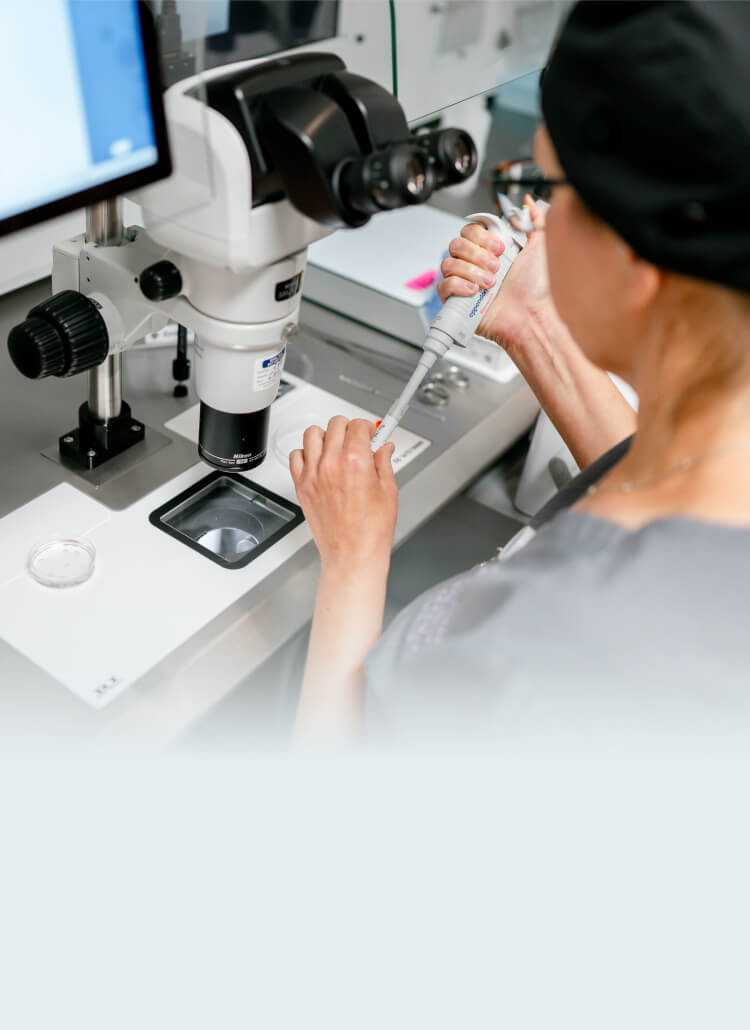Intrauterine Insemination (IUI)
In the simplest terms, IUI is a procedure that places sperm directly inside your uterus, with the goal of getting healthy sperm closer to an egg. It’s a short procedure that can be done at our clinic.


In the simplest terms, IUI is a procedure that places sperm directly inside your uterus, with the goal of getting healthy sperm closer to an egg. It’s a short procedure that can be done at our clinic.
IUI, also known as artificial insemination, can be a great option for couples who are struggling with infertility, and it’s also a means of fertilization with donor sperm. Depending on your diagnosis, we may recommend several IUI attempts before jumping into IVF.
IUI may be an option for mild cases of male factor infertility, as well as for women who are experiencing:
Individuals or couples using donor sperm may undergo IUI. Donor sperm is a good option when a male partner isn’t present, or where male factor infertility is preventing pregnancy. At AFCC, we partner with fully licensed, highly accredited sperm banks, whose screening steps meet well-established standards. Donors are heavily screened for medical conditions and other physical, emotional and psychological risk factors.
IUI is not effective with blockage of both fallopian tubes, severe male factor infertility, severe endometriosis, or severe pelvic scarring. For these conditions, in vitro fertilization (IVF) is the treatment of choice.
Success with IUI depends on several personal factors, including your age, fertility diagnosis, sperm quality, and whether fertility medications are used during the cycle. For patients under 35, IUI offers a per-cycle success rate of about 10–20%. For individuals between 35 and 40, that rate typically drops to 10–15%, and for patients over 40, success rates are closer to 5–10%. While these numbers may seem modest, they’re actually similar to the monthly chances of natural conception for couples without fertility challenges.
Because every patient is different, IUI may be a great first step for some and less effective for others. At Advanced Fertility Center of Chicago, we take the time to understand your specific needs and design a personalized treatment plan that gives you the best possible chance of success. If IUI isn’t the right fit, we’ll guide you through your next options with care and transparency.
Deciding between IUI and IVF can feel overwhelming, especially when you’re weighing success rates, costs, and emotional considerations. Both treatments offer unique benefits, and the right choice often depends on your diagnosis, goals, and insurance coverage.
Explore a clear breakdown of both treatments in The Prelude Network®’s IUI vs. IVF overview and see which is right for you.
IUI is performed by placing specially prepared semen directly into the patient’s uterus using a speculum and catheter so that the sperm can complete the rest of its journey towards the egg. In IUI, fertilization and blastocyst development occur within the body, similar to a traditional pregnancy. In IVF, fertilization takes place outside of the body in a laboratory; eggs and sperm are retrieved from the parents and/or donors and combined together so that the sperm can fertilize the egg, forming a blastocyst embryo. After a few days of development, the resulting blastocyst is transferred to the recipient’s uterus.
IUI procedures are scheduled to be performed during the ovulation phase of a menstrual cycle. As such, it takes about two weeks before a pregnancy test will accurately reveal whether or not the procedure was successful. During this time, it’s recommended that patients not use at-home pregnancy tests, as they can sometimes yield misleading results.
At AFCC, human chorionic gonadotropin (hCG) is used, a self-administered injection that acts as a trigger to start an ovulation cycle.
The IUI procedure is relatively quick and minimally invasive. In terms of discomfort, it is often compared to a standard pap smear.
At AFCC, we expect around a 10% success rate per cycle. However, this varies based on the age of the patient.
Please note that monitoring visits are not included.
Please note that all prices and packages do not include medication costs, pre-screening testing, or pregnancy testing/monitoring, and are subject to change.
Are you ready to explore IUI as your path to parenthood? Our team is here to answer all your questions and concerns so that you can move forward with confidence. Contact Advanced Fertility Center of Chicago today for more information about IUI or to schedule a consultation at one of our fertility clinics in Chicago, Downers Grove, Gurnee, or Arlington Heights.